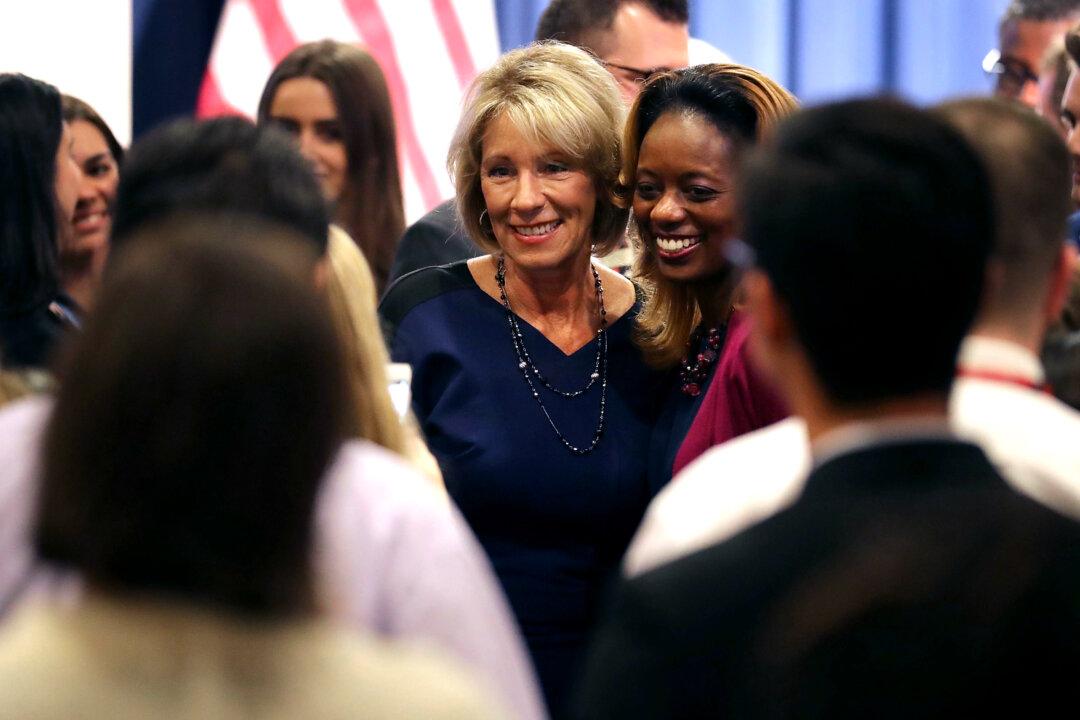WASHINGTON—At her confirmation hearing, Education Secretary Betsy DeVos emphasized the need to empower parents to be able to make choices about their children’s education. However, she may not be able to deliver on this agenda without the help of Congress, which is not a given.
DeVos proposes making the option of charter schools and vouchers available to parents. Charter schools are publicly funded, but are operated privately. Independent of the public school bureaucracy, charter schools are often not unionized and have greater freedom in how they operate than regular public schools.





